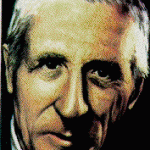Big History, Religious Naturalism, and Ursula Goodenough
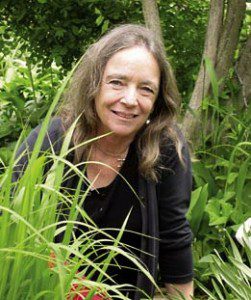
An explicit religious naturalism meets Big History in the work of Ursula Goodenough. Within Big History itself, a variant of naturalism seems implicit.
In previous posts in this series, I suggested that Big History’s method may be unnecessarily constricted by its naturalistic presuppositions. One implication of such a presupposition is that Big History (BH) closes the door on any sympathetic rendering of historically recorded experiences of divine transcendence.
That big historians set out to base their story on evidence-based science is laudable. But to smuggle in an almost hidden naturalism is as unnecessary as it is distorting.
Naturalism is itself a noble theological position. Actually, naturalism is a family of positions. One of the siblings is religious naturalism. This reminds me of Ursula Goodenough.
Ursula is a research scientist – an evolutionary biologist — who is also an articulate naturalist. I wonder what she might say about our analysis of BH, her analysis of what she calls “Everybody’s Story.”
Meet Ursula Goodenough
If you do not yet know the work of Ursula Goodenough, you’re in for a treat.
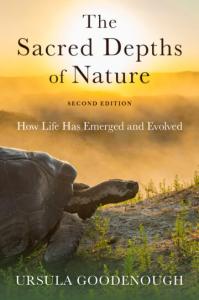
Dr. Goodenough is Professor of Biology Emerita at Washington University. She has been a member of the National Academy of Sciences and served as president of the American Society for Cell Biology. She retired to Martha’s Vineyard in 2017. She has five children and nine grandchildren.
Ursula along with others are developing what is called a religious naturalist orientation. You might benefit from reading the new edition of her book, The Sacred Depths of Nature: How Life Emerged and Evolved which describes her understandings of the religious naturalist orientation.
Let’s ask her about Big History–that is, Everybody’s Story.
Question 1: One of the pioneers in BH is David G. Christian at Macquarie University in Australia. He rejects ancient creation myths as untrue and substitutes belief in the story of the Big Bang told by science. He states: the “modern origin story lacks a creator god…the modern story is about a universe that just is. Any sense of meaning comes not from the universe, but from us humans” (Christian 2018, 9). Would you affirm or critique this approach?
David Christian has of late toned down his dismissals of the traditional religions. For example, in his review of my book, The Sacred Depths of Nature, he writes that the book “invites us to find the deep ethical sense present in all the world’s religious traditions.” Everybody’s Story/Big History includes thousands of human cultures and thousands of religions. Culture and religion are components of natural reality.
I would amend David Christian’s language on meaning. Once a lifeform originated (Chapter 2 of book), it would quickly come to acquire, via evolution, sensory systems that detect useful/harmful features of the environment and respond adaptively. Lifeforms would become “choosy,” (Chapter 3).
I suggest that these detected features have meaning. They are interpreted (Stuart Kaufmann”s “yum” or “yuck”) experiences. There are gazillions of meaning systems out there in addition to those we come up with using our unique symbolic languages.
In short, meaning is built into the history of nature.
Question 2: Big historians frame the creation of earth and the appearance of life within the theory of evolution. This requires deep time, perhaps 13.8 billion years of cosmic history. Would you affirm or critique this approach?
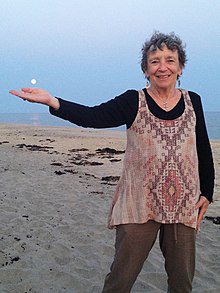
Why would one critique reality?
But let me lift up an important distinction between the creation of something and its evolution.
Examples of creation in Everybody’s Story include the Big Bang, the formation of heavy elements in stars, the origin of life from non-life, the capacity to sense external stimuli, the encoding of biological instructions. Once something is created, then it can undergo evolution via modification and selection.
Something needs to exist before it can evolve. Creation does not, of course, require a Creator. It usually entails the emergence of something else from nothing buts.
Question 3: Arkansas Tech University historian David Blanks commits Big History’s method to naturalism. “My presupposition is that all religious, spiritual and occult beliefs and experiences are natural – not supernatural – and that this is the sense in which they should be investigated” (Gustafson, 2023, 14). Would you affirm or critique this approach?
I don’t use the term religious naturalism, since the -ism suggests a codified system. Instead, I speak of a religious naturalist orientation.
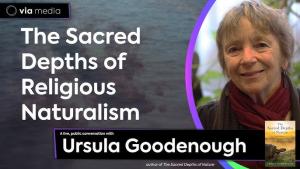
As I elaborate in the book, I adopt Loyal Rue’s premise that each religious tradition is based on a core mythos or narrative that tells How Things Are and How Things Came to Be. This core is typically articulated in oral and written texts.
A religious person adopts this core narrative and works with it in three ways. (1) The interpretive (what does this story tell me about the meaning of life? Of death? etc.). (2) The spiritual (inward responses — how does this story make me feel – reverent, humble, grateful, joyful? etc.). (3) The moral (outward responses – what does this story tell me about how I should behave towards other humans and the planet writ large [ecomorality].
The outcome of this becomes one’s religious orientation. The Christian works with biblical narrative. The naturalist works with Everybody’s Story, with Big History.
Everybody’s Story doesn’t refute the existence of a supernatural dimension. It doesn’t, for example, say anything at all about pre-Big Bang. So, one can insert a purposive supernatural creator here.
The problem comes with translating that abstraction into a personal God with whom one forms a relationship.
There’s also the God-of-the-Gaps option. But the problem here is that the gaps keep getting filled via scientific inquiry. So God ends up with less and less agency.
Question 4: What else would you like to say?
Please consider reading my new book. And, if it resonates, check out the Religious Naturalist Association.
Conclusion
If I understand Ursula Goodenough correctly, she recognizes meaning as already built into natural processes. We humans inherit both natural processes and its meaning. This justifies the religious naturalist orientation. The religious naturalist orientation of Everybody’s Story is consonant with Big History as the big historians conceive it.
Please note that scientific research alone does not justify any form of naturalism let alone any form of materialism. Science alone does not justify any …ism. Why? Because, as Patheos columnist James McGrath avers, “Experimental science is not set up to answer big questions, but very small ones.” Someoner other than the scientist needs to ask the big questions , such as the Question of God.
In future posts I hope to quiz scholars holding different theological positions on their assessment of BH and its hospitality to science.
Patheos SR 5058 BH 8 Big History, Religious Naturalism, and Ursula Goodenough
For more on our analysis of Big History, start clicking.
Patheos SR 5051 BH 1 Science, Religion, and Deep Time
Patheos SR 5052 BH 2 Science and Religion in Big History
Patheos SR 5053 BH 3 Teilhard and Big History
Patheos SR 5054 BH 4 What is history in Big History?
Patheos SR 5055 BH 5 God in Cosmic History
Patheos SR 5056 BH 6 Big History and Evangelical Theology: Roger Olson
Patheos SR 5058 BH 8 Big History, Religious Naturalism, and Ursula Goodenough
Patheos SR 5059 BH 9 Big History and Progressive Christianity: Thomas Lindell
Patheos SR 5060 BH 10 Critique of Ted Peters by Mitchell Diamond
▓
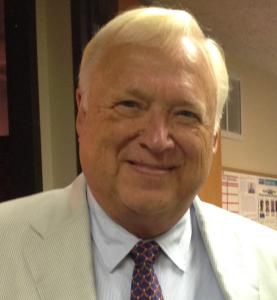 Ted Peters pursues Public Theology at the intersection of science, religion, ethics, and public policy. Peters is an emeritus professor at the Graduate Theological Union, where he co-edits the journal, Theology and Science, on behalf of the Center for Theology and the Natural Sciences, in Berkeley, California, USA. His book, God in Cosmic History, traces the rise of the Axial religions 2500 years ago. He tackled the implications of genetic innovation for the future of humanity in Playing God? Genetic Determinism and Human Freedom? (Routledge, 2nd ed., 2002) as well as For the Love of Children: Genetic Technology and the Future of the Family (Westminster/John Knox 1997). His essays are collected in Science, Theology, and Ethics (Ashgate 2003) The Voice of Public Theology (ATF 2023).
Ted Peters pursues Public Theology at the intersection of science, religion, ethics, and public policy. Peters is an emeritus professor at the Graduate Theological Union, where he co-edits the journal, Theology and Science, on behalf of the Center for Theology and the Natural Sciences, in Berkeley, California, USA. His book, God in Cosmic History, traces the rise of the Axial religions 2500 years ago. He tackled the implications of genetic innovation for the future of humanity in Playing God? Genetic Determinism and Human Freedom? (Routledge, 2nd ed., 2002) as well as For the Love of Children: Genetic Technology and the Future of the Family (Westminster/John Knox 1997). His essays are collected in Science, Theology, and Ethics (Ashgate 2003) The Voice of Public Theology (ATF 2023).
Recently Ted edited AI and IA: Utopia or Extinction? (ATF 2019). Along with Arvin Gouw and Brian Patrick Green, he co-edited the new book, Religious Transhumanism and Its Critics hot off the press (Roman and Littlefield/Lexington, 2022). His fictional spy thriller, Cyrus Twelve, follows the twists and turns of a transhumanist plot.
Visit Ted Peters’ website, TedsTimelyTake.com.
▓
References
Christian, D. (2018). Origin Story. London: Alan Land, Random House.
Goodenough, U. (1998, 2023). The Sacred Depths of Nature. Oxford: Oxford University Press.
Gustafson, Lowell; Barry Rodrique, and David Blanks, eds. (2023). Science, Religion, and Deep Time. London: Routledge.



